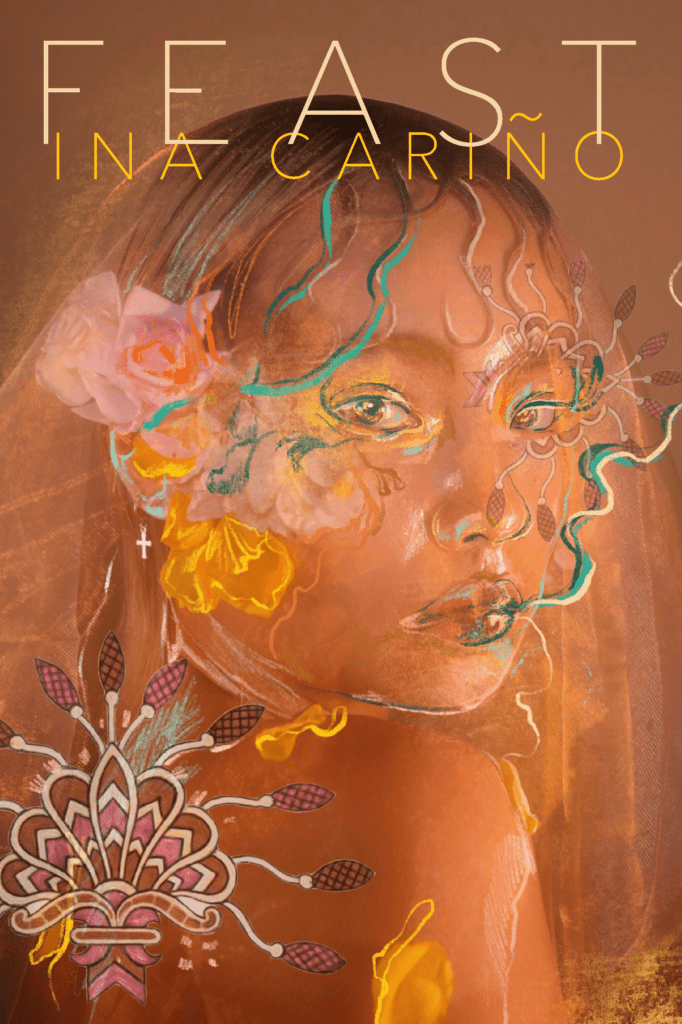Ina Cariño, the recipient of a 2022 Whiting Award and a 2021 Alice James Award, is a Filipinix American poet whose work draws heavily on intergenerational nourishment and transformation in marginalized communities. Feast (100 pages; Alice James Books), their first book of poetry, is an enriching collection that satisfies a primal hunger for fulfillment while questioning the social conditions that leave people of color deprived.
One of the most disarming things about Feast is the bone-deep rawness of this poet’s voice. Even as they veer away from the realm of possibility, the poems feel real because the speaker’s voice remains authentic.
The first section, takipsilim (roughly translated as “twilight” in Tagalog), opens with a poem of nineteen couplets called “Bitter Melon” that immediately set the tone. Brimming with gorgeous food imagery and executed with great precision, these are enchanting poems, luring the reader deeper into the world that Cariño has created.
The titular poem is a dance between the lovely and the macabre—“to eat is to be animal”—and the sweet and childlike depictions of sumptuous food are contrasted with the slaughtering of a pig. The speaker of the poem closes the distance between the slaughterhouse and the dinner table with exactitude: to eat is to be an animal, the adults in this poem make clear, and to question violence is to be a child who is not yet desensitized to empathy.
The poem “Yesterday’s Traumas, Today’s Salt” creates a through-line between the feast that the reader has been presented—and the impoverishment and plundering of the Philippines. It opens with a soft voice:
my family dines luxurious—peasant food in crystal bowls:
seven thousand six hundred forty-one islands jostling in my soup.
here is Luzon, Visayas, Mindanao—grandmother points to mounds
dunking up & down in the saltbroth. & rice, don’t forget the rice,
which she steamed in the old palayok—earthen pot & lid,
unglazed red clay lending its savage tang to the soft white.
Over the course of the poem, these couplets become more frantic as the speaker reaches for more and more salt to disguise the lack of meat in the bowl. The voice further serves to underscore the depth of the beautiful images, and yet it is subtly done; there is no speaker in this collection who tells the reader how to feel, there is only a lived truth. Often, the speaker is dealing with the challenges of being in a marginalized body, and the real danger comes from the outside, from a white-dominated world that alternates between violence and apathy.
The final section, balintataw (which means both “flippant” and “pupil of the eye”), contains what might be the most eye-catching poem in the collection, a fragmented piece with a grid structure, artfully called “Infinitives.” In this simple structure, Cariño imagines the past, present, and future simultaneously as they create a speaker who reflects on their life in three tenses.
These poems are perfectly disorienting and ripe for an escape from reality, while still holding onto a candor that’s timely and fresh: Cariño is so sparing with explicit emotion that when it’s utilized, it’s painfully poignant. Each twist is a gut punch, and we immediately understand the speakers’ connection to these images as well as their fear of the unknown.

